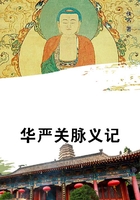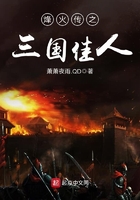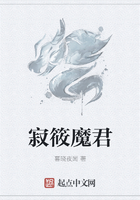When one compares the conditions under which the Spanish American War was fought with those of the Great War, he feels himself living in a different age.Twenty years ago hysteria and sudden panics swept the nation.Cheers and waving handkerchiefs and laughing girls sped the troops on their way.It cannot be denied that the most popular song of the war time was "There'll be a hot time in the old town to-night," though it may be believed that the energy and swing of the music rather than the words made it so.The atmosphere of the country was one of a great national picnic where each one was expected to carry his own lunch.There was apparent none of the concentration of effort and of the calm foresight so necessary for efficiency in modern warfare.For youth the Spanish American War was a great adventure; for the nation it was a diversion sanctioned by a high purpose.
This abandon was doubtless in part due to a comfortable consciousness of the vast disparity in resources between Spain and the United States, which, it was supposed, meant automatically a corresponding difference in fighting strength.
The United States did, indeed, have vast superiorities which rendered unnecessary any worry over many of the essentials which gripped the popular mind during the Great War.People believed that the country could supply the munitions needed, and that of facilities for transport it had enough.If the United States did not have at hand exactly the munitions needed, if the transportation system had not been built to launch an army into Cuba, it was popularly supposed that the wealth of the country rendered such trifles negligible, and that, if insufficient attention had been given to the study of such matters in the past, American ingenuity would quickly offset the lack of skilled military experience.The fact that American soldiers traveled in sleeping cars while European armies were transported in freight cars blinded Americans for a while to the significant fact that there was but a single track leading to Tampa, the principal point of embarkation for Cuba; and no one thought of building another.
Nothing so strongly marks the amateur character of the conduct of the Spanish War as the activity of the American press.The navy was dogged by press dispatch boats which revealed its every move.
When Admiral Sampson started upon his cruise to San Juan, he requested the press boats to observe secrecy, and Admiral Chadwick comments with satisfaction upon the fact that this request was observed "fully and honorably...by every person except one." When Lieutenant Whitney risked his life as a spy in order to investigate conditions in Porto Rico; his plans and purpose were blazoned in the press.Incredible as it may now seem, the newspaper men appear to have felt themselves part of the army.They offered their services as equals, and William Randolph Hearst even ordered one of his staff to sink a vessel in the Suez Canal to delay Camara on his expedition against Dewey.
This order, fortunately for the international reputation of the United States, was not executed.With all their blare and childish enthusiasm, the reporters do not seem to have been so successful in revealing to Americans the plans of Spain as they were in furnishing her with itemized accounts of all the doings of the American forces.
While the press not only revealed but formulated courses of action in the case of the army, the navy, at least, was able to follow its own plans.For this difference there were several causes, chief of which was the fact that the navy was a fully professional arm, ready for action both in equipment and in plans, and able to take a prompt initiative in carrying out an aggressive campaign.The War Department had a more difficult task in adjusting itself to the new conditions brought about by the Spanish American War.The army was made up on the principle traditionally held in the United States that the available army force in time of peace should be just sufficient for the purposes of peace, and that it should be enlarged in time of war.To allow a fair amount of expansion without too much disturbance to the organization in increasing to war strength, the regular army was over-officered in peace times.The chief reliance in war was placed upon the militia.The organization and training of this force was left, however, under a few very general directions, to the various States.As a result, its quality varied and it was nowhere highly efficient in the military sense.Some regiments, it is true, were impressive on parade, but almost none of the officers knew anything of actual modern warfare.There had been no preliminary sifting of ability in the army, and it was only as experience gave the test that the capable and informed were called into positions of importance.In fact, the training of the regular officers was inferior to that of the naval officers.West Point and Annapolis were both excellent in the quality of their instruction, but what they offered amounted only to a college course, and in the army there was no provision for systematic graduate study corresponding to the Naval War College at Newport.
These difficulties and deficiencies, however, cannot fully explain the woeful inferiority of the army to the navy in preparedness.Fundamentally the defect was at the top.Russell A.
Alger, the Secretary of War, was a veteran of the Civil War and a silver-voiced orator, but his book on the "Spanish-American War,"which was intended as a vindication of his record, proves that even eighteen months of as grueling denunciation as any American official has ever received could not enlighten him as to what were the functions of his office.Nor did he correct or supplement his own incompetence by seeking professional advice.
There existed no general staff, and it did not occur to him, as it did to Secretary Long, to create one to advise him unofficially.He was on bad terms with Major General Nelson A.















